Table Of Content
Biography
![APJ-Abdul-Kalam-biography-tring.jpg APJ-Abdul-Kalam-biography]() Avul Pakir Jainulabdeen Abdul Kalam (born October 15, 1931, Rameswaram, India—died July 27, 2015, Shillong) was an Indian aeronautical scientist and statesman who served as India's 11th president from 2002 to 2007. He was born and raised in Rameswaram, Tamil Nadu, and studied physics and aerospace engineering. He spent the following four decades as a scientist and science administrator, primarily at the Defence Research and Development Organisation (DRDO) and the Indian Space Research Organisation (ISRO), and was deeply involved in India's civilian space programme and military missile development operations. As a result of his efforts on the development of ballistic missile and launch vehicle technologies, he became renowned as the Missile Man of India. He also played a key role in the development of India's missile and nuclear weapons programmes.
Avul Pakir Jainulabdeen Abdul Kalam (born October 15, 1931, Rameswaram, India—died July 27, 2015, Shillong) was an Indian aeronautical scientist and statesman who served as India's 11th president from 2002 to 2007. He was born and raised in Rameswaram, Tamil Nadu, and studied physics and aerospace engineering. He spent the following four decades as a scientist and science administrator, primarily at the Defence Research and Development Organisation (DRDO) and the Indian Space Research Organisation (ISRO), and was deeply involved in India's civilian space programme and military missile development operations. As a result of his efforts on the development of ballistic missile and launch vehicle technologies, he became renowned as the Missile Man of India. He also played a key role in the development of India's missile and nuclear weapons programmes.
Kalam was elected as India's 11th president in 2002, with backing from both the current ruling Bharatiya Janata Party and the then-opposition Indian National Congress. After a single tenure as the People's President, he returned to his regular life of education, writing, and public service. He received several major accolades, including India's highest civilian recognition, the Bharat Ratna.On July 27, 2015, while delivering a lecture at the Indian Institute of Management Shillong, Kalam collapsed and died from an apparent heart arrest at the age of 83. Thousands of people, including national leaders, attended his funeral service in Rameswaram, where he was buried with full state honours.
Age
A.P.J Abdul Kalam was born on October 15, 1931. He was 83 years old at the time of this death. He passed away on July 27, 2015.
Early Life And Childhood
![abdul-kalam-childhood-tring.jpg abdul-kalam-childhood]() A.P.J Abdul Kalam's birthplace was Rameswaram, a magnificent pilgrimage centre on Pamban Island in Tamil Nadu, which was originally part of the Madras Presidency.His father, Jainulabdeen Marakayar, played two important roles: he led prayers as the imam of the local mosque and ran a boat service between Rameswaram and the now-abondoned Dhanushkodi. Ashiamma, his mother, committed herself to household management.
A.P.J Abdul Kalam's birthplace was Rameswaram, a magnificent pilgrimage centre on Pamban Island in Tamil Nadu, which was originally part of the Madras Presidency.His father, Jainulabdeen Marakayar, played two important roles: he led prayers as the imam of the local mosque and ran a boat service between Rameswaram and the now-abondoned Dhanushkodi. Ashiamma, his mother, committed herself to household management.
The Kalam family was a prominent trader and landowner with roots in the Marakayar village. The Marakayars, who live primarily on the Tamil Nadu coast and in Sri Lanka, believe they are the result of intermarriages between Arab traders and indigenous women.The family first earned fortune through trading food between mainland India and the island, which included the operating of a pilgrim ferry. However, fortunes took a turn for the worst with the opening of the Pamban Bridge connecting the island to the mainland in 1914. Their lucrative business faded, and by the 1920s, the family had lost everything but their ancestral home.Kalam was born into a household that was struggling with poverty. The young Kalam, the youngest of his four brothers and one sister, stood up to help by helping to increase the family's meagre income by peddling newspapers.
Education
While in school, Kalam received mediocre grades but was noted as a bright, diligent student with a strong desire to learn. He worked on his studies for hours, particularly in mathematics. After completing his education at the Schwartz Higher Secondary School in Ramanathapuram, Kalam continued his studies at Saint Joseph's College in Tiruchirappalli, which was then a part of the University of Madras. He received his physics degree from Saint Joseph's College in 1954. In 1955, he relocated to Madras to pursue a degree in aerospace engineering at the Madras Institute of Technology.
As Kalam worked on a senior class assignment, the Dean expressed displeasure with his lack of progress and threatened to cancel his scholarship if the project wasn't accomplished within the following three days. The Dean praised Kalam for meeting the deadline after he had impressed him and told him that he was putting him under stress and asking him to meet a difficult deadline. As he finished ninth in the qualifiers and only eight seats in the IAF were open, he almost missed realising his dream of becoming a fighter pilot.
Family And Personal Life
![APJ-Abdul-Kalam-family-photo-tring.jpg abdul-kalam-family-photo]() A.P.J.Abdul Kalam’s mother’s name was Ashiamma and his father’s name was Jainulabdeen Marakayar. Kalam was the youngest of five children; the three older brothers were Mustafa Kalam (d. 1999), Kasim Mohammed (d. 1995), and Mohammed Muthu Meera Lebbai Maraikayar (5 November 1916 - 7 March 2021). The oldest child was a sister named Asim Zohra, who died in 1997. Throughout his life, he was very close to his older brothers and their extended families. Despite the fact that he was a lifelong bachelor, he frequently sent his older relatives small sums of money.
A.P.J.Abdul Kalam’s mother’s name was Ashiamma and his father’s name was Jainulabdeen Marakayar. Kalam was the youngest of five children; the three older brothers were Mustafa Kalam (d. 1999), Kasim Mohammed (d. 1995), and Mohammed Muthu Meera Lebbai Maraikayar (5 November 1916 - 7 March 2021). The oldest child was a sister named Asim Zohra, who died in 1997. Throughout his life, he was very close to his older brothers and their extended families. Despite the fact that he was a lifelong bachelor, he frequently sent his older relatives small sums of money.
Kalam was admired for his honesty and modest way of life. He never had a television, and his routine included getting up at 6:30 or 7 a.m. and going to bed at 2 a.m. His veena, books, clothes, a CD player, and a laptop were among his few personal belongings. He died without leaving a will, therefore his elder brother, who survived him, received his goods.
Career As Scientist
![APJ-Kalam-scientist.jpg APJ-Kalam-scientist]() Dr. A.P.J Abdul Kalam, after graduation from the Madras Institute of Technology in 1960, joined the Aeronautical Development Establishment of the Defence Research and Development Organisation (DRDO). His initial work involved designing a small hovercraft before joining INCOSPAR under the guidance of Vikram Sarabhai, a renowned space scientist. Recruited by H. G. S. Murthy joined ISRO, Kalam became the project director of India's first Satellite Launch Vehicle (SLV-III) that successfully deployed the Rohini satellite in July 1980. He first initiated work on an expandable rocket project in 1965 and received approval to expand this programme in 1969, engaging more engineers.
Dr. A.P.J Abdul Kalam, after graduation from the Madras Institute of Technology in 1960, joined the Aeronautical Development Establishment of the Defence Research and Development Organisation (DRDO). His initial work involved designing a small hovercraft before joining INCOSPAR under the guidance of Vikram Sarabhai, a renowned space scientist. Recruited by H. G. S. Murthy joined ISRO, Kalam became the project director of India's first Satellite Launch Vehicle (SLV-III) that successfully deployed the Rohini satellite in July 1980. He first initiated work on an expandable rocket project in 1965 and received approval to expand this programme in 1969, engaging more engineers.
While at DRDO, Kalam visited NASA's Langley Research Center, Goddard Space Flight Center, and Wallops Flight Facility from 1963 to 1964. Through the 1970s to 1990s, he diligently worked to develop the Polar Satellite Launch Vehicle (PSLV) and SLV-III projects. He also steered two projects, Project Devil and Project Valiant, in the 1970s, which aimed to convert the technology of the successful SLV program into ballistic missiles. Despite facing disapproval from the Union Cabinet, he managed to secure secret funding for these projects from Prime Minister Indira Gandhi.
Kalam served as the Chief Scientific Adviser to the Prime Minister and Secretary of the Defence Research and Development Organisation from July 1992 to December 1999, and had a significant role in the Pokhran-II nuclear tests. He served as the Chief Project Coordinator during the testing phase, which made him the country's best-known nuclear scientist. Furthermore, in collaboration with cardiologist Soma Raju, Dr. Kalam developed a low-cost coronary stent named the Kalam-Raju Stent in 1998 and a rugged tablet computer for rural health care named the Kalam-Raju Tablet in 2012.
Presidency
![apj-abdul-kalam-presidency-tring.jpg apj-abdul-kalam-presidency-tring]() A.P.J Abdul Kalam served as the 11th president of India, following K. R. Narayanan, winning the 2002 presidential election with 922,884 electoral votes. His presidential term spanned from 25 July 2002 to 25 July 2007. Nominated for the post of President by the National Democratic Alliance (NDA) in power at the time, Kalam's candidacy was also backed by the Samajwadi Party and the Nationalist Congress Party. He outpaced all other candidates in the election and began his presidency on 25 July 2002. He became the third President to be honoured with the Bharat Ratna, India's highest civilian honour, prior to his presidency and was the first scientist and the first bachelor to serve as President.
A.P.J Abdul Kalam served as the 11th president of India, following K. R. Narayanan, winning the 2002 presidential election with 922,884 electoral votes. His presidential term spanned from 25 July 2002 to 25 July 2007. Nominated for the post of President by the National Democratic Alliance (NDA) in power at the time, Kalam's candidacy was also backed by the Samajwadi Party and the Nationalist Congress Party. He outpaced all other candidates in the election and began his presidency on 25 July 2002. He became the third President to be honoured with the Bharat Ratna, India's highest civilian honour, prior to his presidency and was the first scientist and the first bachelor to serve as President.
During his presidency, Kalam became known as the People's President, however, he faced criticism regarding his inaction on many mercy petitions. As per Article 72 of the Indian Constitution, the President has the power to grant pardons, and suspend or commute the death sentence of convicts on death row. Kalam only acted on one mercy plea in his tenure, rejecting the plea of rapist Dhananjoy Chatterjee. He imposed President's Rule in Bihar in 2005, a controversial decision. Despite this, he advocated for the need for a Uniform Civil Code in India, given the country's population.
At the end of Kalam's term in 2007, he expressed an openness to a second term, given that his victory was certain. However, he eventually decided against contesting in the Presidential Election to avoid political involvement on the part of Rashtrapati Bhavan. Though initially proposed by the United National Progressive Alliance leader J. Jayalalithaa for a second presidential stint, Kalam declined due to the lack of support from left parties, Shiv Sena, and UPA constituents. Rumours surfaced in 2012 that Kalam might be nominated for a second term, with many supporting the idea on social networks. However, despite support from some sections, he eventually declined to contest the 2012 Presidential election.
Quotes By A.P.J.Abdul Kalam
-
Dream, dream, dream. Dreams transform into thoughts and thoughts result in action.
-
You have to dream before your dreams can come true.![dr_APJ_abdul_kalam-quotes.jpg dr_APJ_abdul_kalam-quotes]()
-
To succeed in your mission, you must have single-minded devotion to your goal.
-
If you want to shine like a sun, first burn like a sun
-
Don't take rest after your first victory because if you fail in the second, more lips are waiting to say that your first victory was just luck.
-
All birds find shelter during a rain. But the eagle avoids rain by flying above the clouds. Problems are common, but attitude makes the difference!
-
Excellence is a continuous process and not an accident.
-
Failure will never overtake me if my determination to succeed is strong enough.
-
End is not the end; In fact, E.N.D. means 'Effort Never Dies'
-
Confidence and hard work is the best medicine to kill the disease called failure. It will make you a successful person
-
You cannot change your future, but you can change your habits, and surely your habits will change your future.
-
Science is a beautiful gift to humanity; we should not distort it.
-
It is very easy to defeat someone, but it is very hard to win someone.
-
Man needs difficulties in life because they are necessary to enjoy success.
-
If you fail, never give up because F.A.I.L. means 'First Attempt in Learning.
Inspiring Thoughts By APJ Abdul Kalam
-
God, our Creator, has stored within our minds and personalities, great potential strength and ability. Prayer helps us tap and develop these powers.
-
Let us sacrifice our today so that our children can have a better tomorrow. ![APJ ABDUL KALAM THOUGHTS.jpg APJ ABDUL KALAM THOUGHTS]()
-
Life is a difficult game. You can win it only by retaining your birthright to be a person.
-
All birds find shelter during a rain. But eagle avoids rain by flying above the clouds.
-
It is very easy to defeat someone, but it is very hard to win someone.
-
For great men, religion is a way of making friends; small people make religion a fighting tool.
-
The youth need to be enabled to become job generators from job seekers.
-
Do we not realise that self respect comes with self reliance?
-
Where do the evils like corruption arise from? It comes from the never-ending greed. The fight for corruption-free ethical society will have to be fought against this greed and replace it with 'what can I give' spirit.
-
All wars signify the failure of conflict resolution mechanisms, and they need post-war rebuilding of faith, trust and confidence.
-
No sanction can stand against ignited minds.
-
Where there is righteousness in the heart, there is harmony in the house; when there is harmony in the house, there is order in the nation; when there is order in the nation, there is peace in the world.
-
It Is Very Easy To Defeat Someone, But It Is Very Hard To Win Someone
-
Thinking should become your capital asset, no matter whatever ups and downs you come across in your life.
-
I had only one formula for my team to follow—goal-setting, positive thinking, visualising and believing.
Writings
![WINGS-OF-FIRE-ABDUL-KALAM.jpg WINGS-OF-FIRE-ABDUL-KALAM]() In his book India 2020, A.P.J. Abdul Kalam envisioned India to become a knowledge superpower and a fully developed country by 20201. Integral to this vision was his work on India's nuclear weapons, which exemplified the importance of self-reliance in critical technologies. Moreover, he emphasised five key competency areas: agriculture and food processing, education and healthcare, information and communication technology, infrastructure, and self-reliance in critical technologies. He believed that an integrated and coordinated approach in these areas could result in food, economic, and national security.
In his book India 2020, A.P.J. Abdul Kalam envisioned India to become a knowledge superpower and a fully developed country by 20201. Integral to this vision was his work on India's nuclear weapons, which exemplified the importance of self-reliance in critical technologies. Moreover, he emphasised five key competency areas: agriculture and food processing, education and healthcare, information and communication technology, infrastructure, and self-reliance in critical technologies. He believed that an integrated and coordinated approach in these areas could result in food, economic, and national security.
A significant turning point in Kalam's life was his interaction with Pramukh Swami, inspiring him to conceive a spiritually-driven development strategy. Pramuh Swami suggested Kalam add faith in God and spirituality as the sixth area of focus to tackle crime and corruption, which became the cornerstone of Kalam's spiritual vision for the subsequent 15 years of his life. This transformative insight was chronicled in his final book, Transcendence: My Spiritual Experiences with Pramukh Swamiji.
In addition to his strategic vision, Kalam was an active contributor and observer of emerging developments in science and technology, notably the research program for developing biomedical implants. A strong proponent of open-source technology, he believed that large-scale usage of free software can make benefits of IT accessible to more people. After retiring as a scientific adviser in 1999, he vowed to interact with 100,000 students in the following two years, intending to inspire them to contribute to India's development
Death
In order to give a talk at the Indian Institute of Management Shillong on Creating a Livable Planet Earth on July 27, 2015, Kalam travelled to Shillong. He felt some agony as he climbed the steps, but after a little pause, he was able to enter the theatre.He passed out just five minutes into his talk at roughly 6:35 p.m. IST. He was hurried in a serious condition to the adjacent Bethany Hospital; when he arrived, he had no pulse or other indications of life. Despite being admitted to the intensive care unit, Kalam was declared dead at 7:45 p.m. IST due to a sudden heart arrest. According to reports, his final words to his assistant Srijan Pal Singh were, Funny guy! How are you doing?
Following the unfortunate death of A.P.J. Abdul Kalam, his body was conveyed from Shillong to Guwahati via an Indian Air Force helicopter, and then flown to New Delhi on 28 July. Upon arrival at Palam Air Base, high-profile dignitaries, including the President, vice-president, the Prime Minister, the Delhi Chief Minister, and the three service chiefs of the Indian Armed Forces, received his body. Soon, the procession moved to Kalam's Delhi residence where many paid their respects12.
On 29 July, Kalam's body was flown to Madurai, where it was received by national and state leaders. It was then transferred to his hometown of Rameswaram where the public paid their final respects. On 30 July 2015, a state funeral was held at Pei Karumbu Ground in Rameswaram, attended by over 350,000 people, including the Prime Minister, the Tamil Nadu Governor, and the chief ministers of various states3456.
Awards
|
Year of award or honour
|
Name of award or honour
|
|
2014
|
Honorary professor
|
|
2014
|
Doctor of Science
|
|
2013
|
Von Braun Award
|
|
2012
|
Doctor of Laws (Honoris Causa)
|
|
2011
|
IEEE Honorary Membership
|
|
2010
|
Doctor of Engineering
|
|
2009
|
Honorary Doctorate
|
|
2009
|
International von Kármán Wings Award
|
|
2008
|
Doctor of Science
|
|
2008
|
Hoover Medal
|
|
2008
|
Doctor of Engineering (Honoris Causa)
|
|
2008
|
Doctor of Science (Honoris Causa)
|
|
2007
|
Honorary Doctorate of Science and Technology
|
|
2007
|
King Charles II Medal
|
|
2007
|
Honorary Doctorate of Science
|
|
2000
|
Ramanujan Award
|
|
1998
|
Veer Savarkar Award
|
|
1997
|
Indira Gandhi Award for National Integration
|
|
1997
|
Bharat Ratna
|
|
1995
|
Honorary Fellow
|
|
1994
|
Distinguished Fellow
|
|
1990
|
Padma Vibhushan
|
|
1981
|
Padma Bhushan
|
State Honours
|
Honour
|
Country
|
Date
|
Note
|
|
Padma Bhushan
|
India
|
1981
|
The third-highest civilian honour of India.
|
|
Padma Vibhushan
|
India
|
1990
|
The second-highest civilian honour of India.
|
|
Bharat Ratna
|
India
|
1997
|
The highest civilian honour of India.
|
Kalam’s Books
-
1988 - Developments in Fluid Mechanics and Space Technology by A P J Abdul Kalam and Roddam Narasimha.
-
1998 - India 2020: A Vision for the New Millennium by A P J Abdul Kalam and Y. S. Rajan.
-
1999 - Wings of Fire: An Autobiography by A P J Abdul Kalam and Arun Tiwari.
-
2002 - Ignited Minds: Unleashing the Power Within India by A P J Abdul Kalam.
-
2004 - The Luminous Sparks by A P J Abdul Kalam.
-
2005 - Mission India by A P J Abdul Kalam, Paintings by Manav Gupta.
-
2007 - Inspiring Thoughts by A P J Abdul Kalam.
-
Date Unknown - Indomitable Spirit by A P J Abdul Kalam.
-
Date Unknown - Envisioning an Empowered Nation by A P J Abdul Kalam with A Sivathanu Pillai.
-
2011 - You Are Born To Blossom: Take My Journey Beyond by A P J Abdul Kalam and Arun Tiwari.
-
2012 - Turning Points: A journey through challenges by A P J Abdul Kalam.
-
2011 - Target 3 Billion by A P J Abdul Kalam and Srijan Pal Singh.
-
2014 - My Journey: Transforming Dreams into Actions by A P J Abdul Kalam.
-
2014 - A Manifesto for Change: A Sequel to India 2020 by A P J Abdul Kalam and V Ponraj.
-
2014 - Forge your Future: Candid, Forthright, Inspiring by A P J Abdul Kalam.
-
2015 - Reignited: Scientific Pathways to a Brighter Future by A P J Abdul Kalam and Srijan Pal Singh.
-
2015 - Transcendence: My Spiritual Experiences with Pramukh Swamiji by A P J Abdul Kalam with Arun Tiwari.
-
2015 - Advantage India: From Challenge to Opportunity by A P J Abdul Kalam and Srijan Pal Singh.
Biographies Of A.P.J. Abdul Kalam
-
2016: The People's President: Dr A P J Abdul Kalam by S M Khan; Bloomsbury Publishing.![life-of-APJ-Abdul-Kalam-BOOK.jpg life-of-APJ-Abdul-Kalam-BOOK]()
-
2015: A.P.J. Abdul Kalam: A Life by Arun Tiwari; Harper Collins.
-
2009: My Days With Mahatma Abdul Kalam by Fr A K George; Novel Corporation.
-
2008: The Kalam Effect: My Years with the President by P M Nair; HarperCollins.
-
2008: A Little Dream (documentary film) by P. Dhanapal; Minveli Media Works Private Limited.
-
2002: A P J Abdul Kalam: The Visionary of India by K Bhushan, G Katyal; A P H Pub Corp.
-
2002: President A P J Abdul Kalam by R K Pruthi; Anmol Publications.
-
2002: Eternal Quest: Life and Times of Dr Kalam by S Chandra; Pentagon Publishers.
Interesting Facts
-
He was awarded honorary doctorates by 40 domestic and foreign universities.
-
He was responsible for developing and deploying the Agni and Prithvi missiles. He is referred to as India's Missile Man because of this.
-
The autobiography of APJ Abdul Kalam, titled "Wings of Fire," was first released in English and has subsequently been translated into 13 other languages. Originally published in English, it was eventually translated into 13 other languages, including French and Chinese, as a result of its success and the public's need for details about his life.
-
Six biographies have been written about him and his life.
-
Kalam lost out on the opportunity to become a fighter pilot in the Indian Air Force. There were only 8 seats available, and he was ranked ninth on the list. On the shortlist, the first eight applicants were hired.
-
When he took office as the 11th President of the Republic of India on July 25, 2002, he made history by being the first scientist and the first bachelor to hold that position in Rashtrapati Bhawan.
-
NASA scientists gave the name Solibacillus kalamii to a novel microbe in memory of Dr. Kalam, who received his initial training there in 1963.
-
In February 2018, researchers from the Botanical Survey of India gave his name to a newly discovered plant species from two protected National Parks in West Bengal.
-
Kalam only had 2,500 books, a veena, CD player, laptop, wrist watch, six shirts, four pairs of pants, three suits and a pair of shoes when he passed away. After his term as President ended, he used to live off the royalties from the books he published and the government pension.
-
In India, World Students' Day is observed on October 15, the birthday of India's 11th President, A. P. J. Abdul Kalam.
Picture Quotes
About Us
Tring is your one-stop destination for personalized celebrity video messages.
We bring smiles to faces and create unforgettable moments with personalized celebrity greetings. At Tring, our ultimate mission is to bridge the gap between you and your favorite celebrities.
Its as easy as choosing a celebrity from our website, telling them what to say, get your selfie video by the celebrity and share with or surprise your loved ones.
Click on the book now button to get started.
![button_book-now.png]()
![birthday occasion]() Birthday Gifts
Birthday Gifts
![anniversary occasion]() Anniversary Gifts
Anniversary Gifts
![women]() Women
Women
![men]() Men
Men
![Couples]() Couples
Couples
![Couples]() Wedding Gifts
Wedding Gifts

 Birthday Gifts
Birthday Gifts
 Women
Women
 Men
Men
 Anniversary Gifts
Anniversary Gifts
 Wedding Gifts
Wedding Gifts
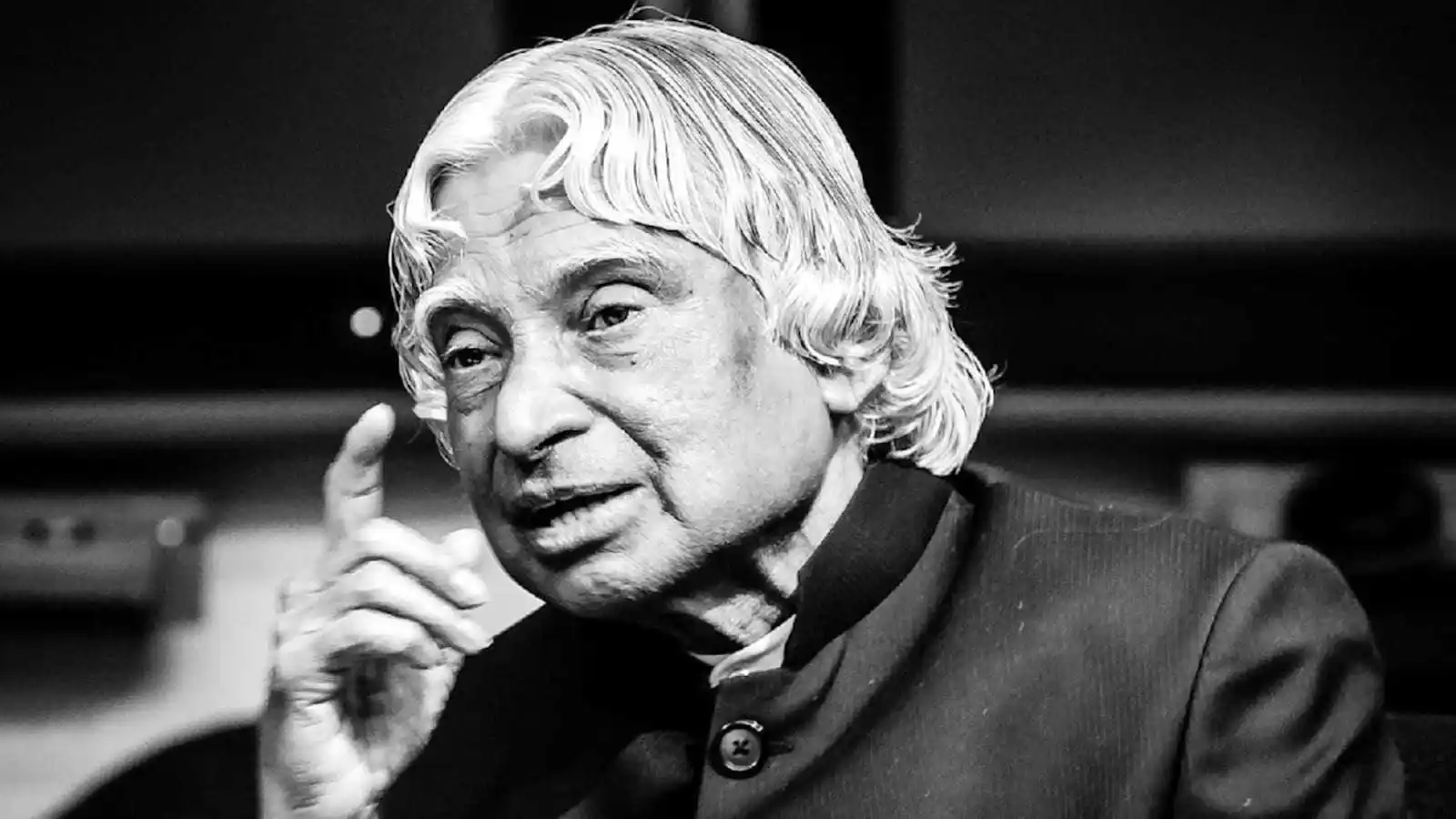 Avul Pakir Jainulabdeen Abdul Kalam (born October 15, 1931, Rameswaram, India—died July 27, 2015, Shillong) was an Indian aeronautical scientist and statesman who served as India's 11th president from 2002 to 2007. He was born and raised in Rameswaram, Tamil Nadu, and studied physics and aerospace engineering. He spent the following four decades as a scientist and science administrator, primarily at the Defence Research and Development Organisation (DRDO) and the Indian Space Research Organisation (ISRO), and was deeply involved in India's civilian space programme and military missile development operations. As a result of his efforts on the development of ballistic missile and launch vehicle technologies, he became renowned as the Missile Man of India. He also played a key role in the development of India's missile and nuclear weapons programmes.
Avul Pakir Jainulabdeen Abdul Kalam (born October 15, 1931, Rameswaram, India—died July 27, 2015, Shillong) was an Indian aeronautical scientist and statesman who served as India's 11th president from 2002 to 2007. He was born and raised in Rameswaram, Tamil Nadu, and studied physics and aerospace engineering. He spent the following four decades as a scientist and science administrator, primarily at the Defence Research and Development Organisation (DRDO) and the Indian Space Research Organisation (ISRO), and was deeply involved in India's civilian space programme and military missile development operations. As a result of his efforts on the development of ballistic missile and launch vehicle technologies, he became renowned as the Missile Man of India. He also played a key role in the development of India's missile and nuclear weapons programmes. 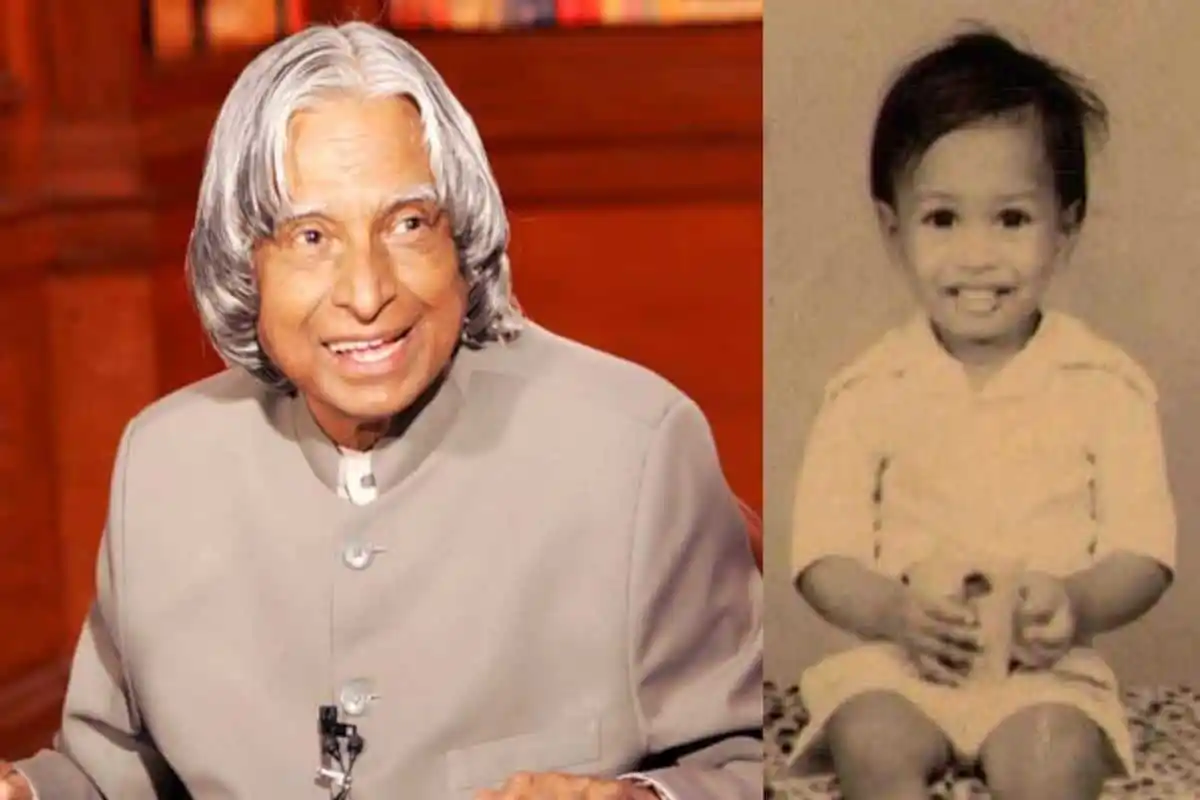 A.P.J Abdul Kalam's birthplace was Rameswaram, a magnificent pilgrimage centre on Pamban Island in Tamil Nadu, which was originally part of the Madras Presidency.His father, Jainulabdeen Marakayar, played two important roles: he led prayers as the imam of the local mosque and ran a boat service between Rameswaram and the now-abondoned Dhanushkodi. Ashiamma, his mother, committed herself to household management.
A.P.J Abdul Kalam's birthplace was Rameswaram, a magnificent pilgrimage centre on Pamban Island in Tamil Nadu, which was originally part of the Madras Presidency.His father, Jainulabdeen Marakayar, played two important roles: he led prayers as the imam of the local mosque and ran a boat service between Rameswaram and the now-abondoned Dhanushkodi. Ashiamma, his mother, committed herself to household management. A.P.J.Abdul Kalam’s mother’s name was Ashiamma and his father’s name was Jainulabdeen Marakayar. Kalam was the youngest of five children; the three older brothers were Mustafa Kalam (d. 1999), Kasim Mohammed (d. 1995), and Mohammed Muthu Meera Lebbai Maraikayar (5 November 1916 - 7 March 2021). The oldest child was a sister named Asim Zohra, who died in 1997. Throughout his life, he was very close to his older brothers and their extended families. Despite the fact that he was a lifelong bachelor, he frequently sent his older relatives small sums of money.
A.P.J.Abdul Kalam’s mother’s name was Ashiamma and his father’s name was Jainulabdeen Marakayar. Kalam was the youngest of five children; the three older brothers were Mustafa Kalam (d. 1999), Kasim Mohammed (d. 1995), and Mohammed Muthu Meera Lebbai Maraikayar (5 November 1916 - 7 March 2021). The oldest child was a sister named Asim Zohra, who died in 1997. Throughout his life, he was very close to his older brothers and their extended families. Despite the fact that he was a lifelong bachelor, he frequently sent his older relatives small sums of money.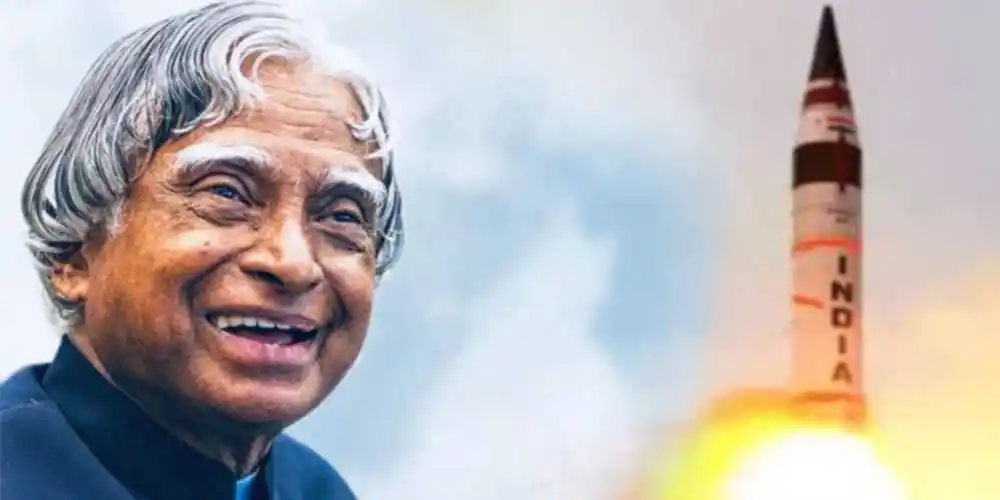 Dr. A.P.J Abdul Kalam, after graduation from the Madras Institute of Technology in 1960, joined the Aeronautical Development Establishment of the Defence Research and Development Organisation (DRDO). His initial work involved designing a small hovercraft before joining INCOSPAR under the guidance of Vikram Sarabhai, a renowned space scientist. Recruited by H. G. S. Murthy joined ISRO, Kalam became the project director of India's first Satellite Launch Vehicle (SLV-III) that successfully deployed the Rohini satellite in July 1980. He first initiated work on an expandable rocket project in 1965 and received approval to expand this programme in 1969, engaging more engineers.
Dr. A.P.J Abdul Kalam, after graduation from the Madras Institute of Technology in 1960, joined the Aeronautical Development Establishment of the Defence Research and Development Organisation (DRDO). His initial work involved designing a small hovercraft before joining INCOSPAR under the guidance of Vikram Sarabhai, a renowned space scientist. Recruited by H. G. S. Murthy joined ISRO, Kalam became the project director of India's first Satellite Launch Vehicle (SLV-III) that successfully deployed the Rohini satellite in July 1980. He first initiated work on an expandable rocket project in 1965 and received approval to expand this programme in 1969, engaging more engineers.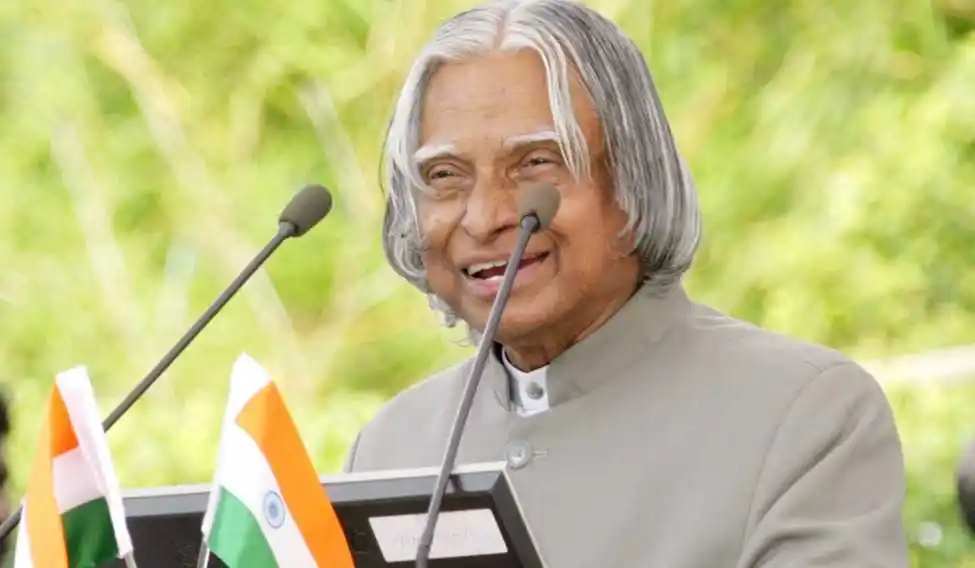 A.P.J Abdul Kalam served as the 11th president of India, following K. R. Narayanan, winning the 2002 presidential election with 922,884 electoral votes. His presidential term spanned from 25 July 2002 to 25 July 2007. Nominated for the post of President by the National Democratic Alliance (NDA) in power at the time, Kalam's candidacy was also backed by the Samajwadi Party and the Nationalist Congress Party. He outpaced all other candidates in the election and began his presidency on 25 July 2002. He became the third President to be honoured with the Bharat Ratna, India's highest civilian honour, prior to his presidency and was the first scientist and the first bachelor to serve as President.
A.P.J Abdul Kalam served as the 11th president of India, following K. R. Narayanan, winning the 2002 presidential election with 922,884 electoral votes. His presidential term spanned from 25 July 2002 to 25 July 2007. Nominated for the post of President by the National Democratic Alliance (NDA) in power at the time, Kalam's candidacy was also backed by the Samajwadi Party and the Nationalist Congress Party. He outpaced all other candidates in the election and began his presidency on 25 July 2002. He became the third President to be honoured with the Bharat Ratna, India's highest civilian honour, prior to his presidency and was the first scientist and the first bachelor to serve as President.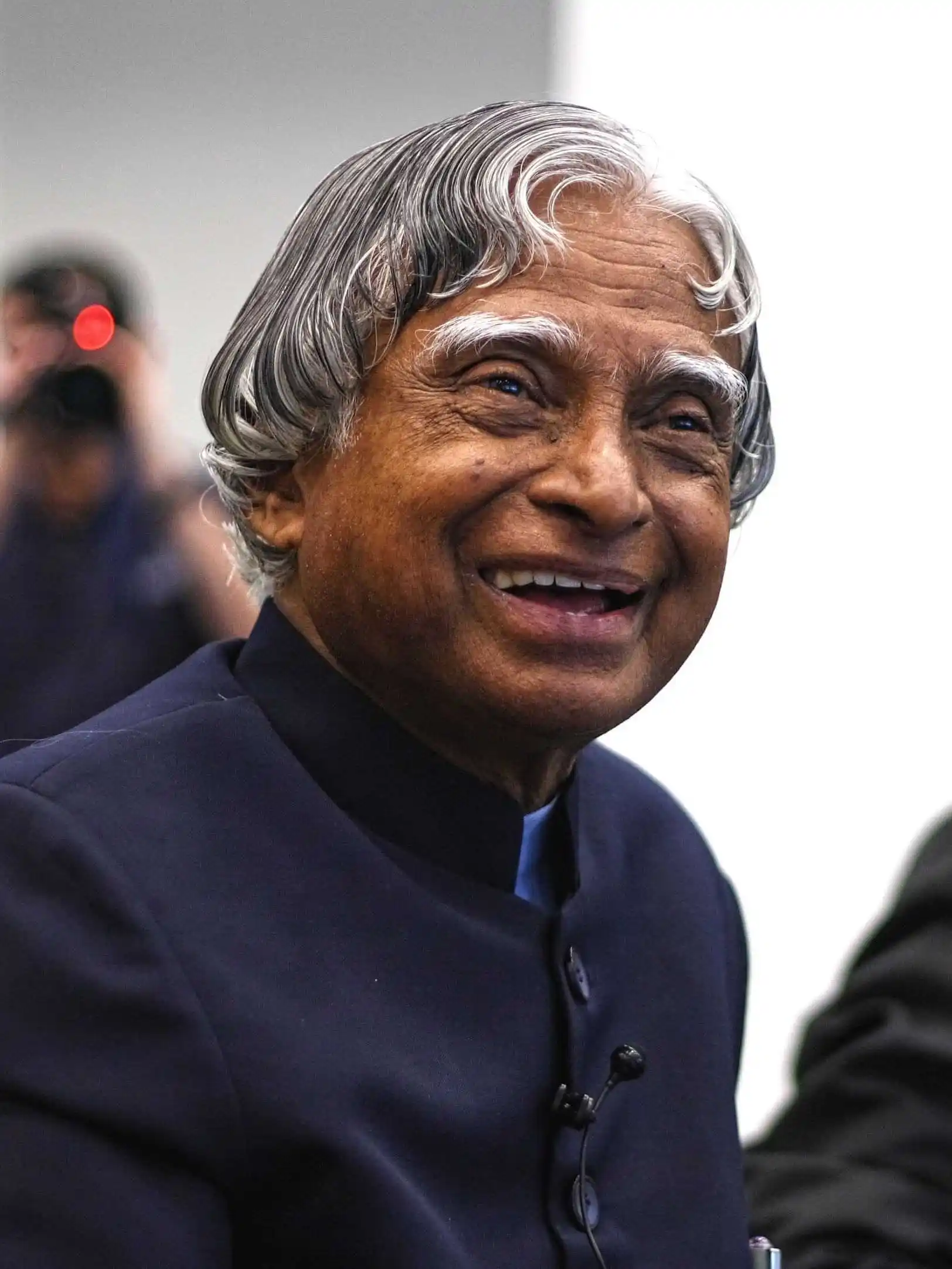
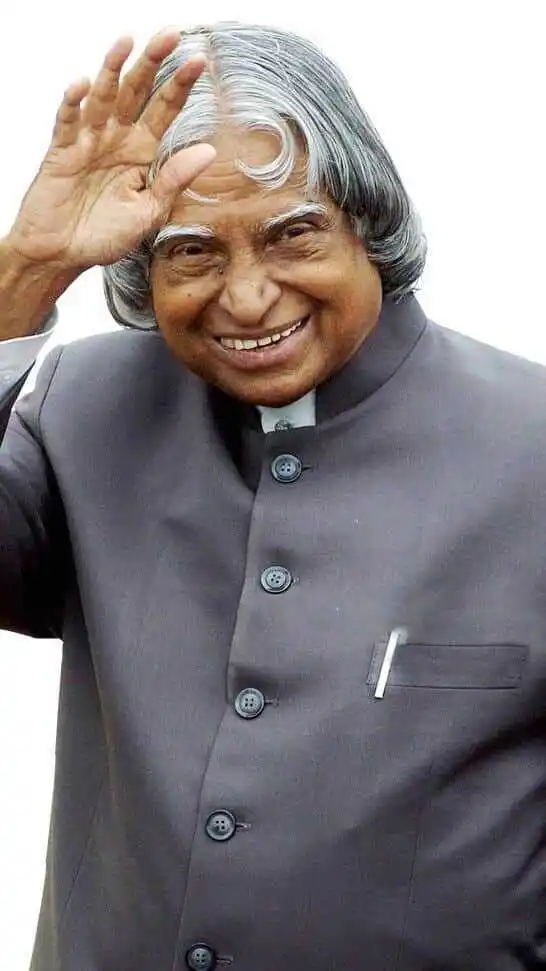
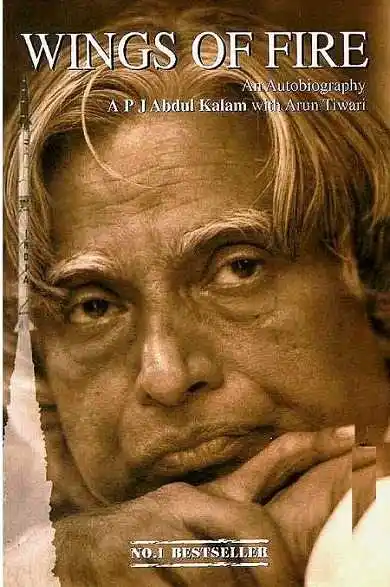 In his book India 2020, A.P.J. Abdul Kalam envisioned India to become a knowledge superpower and a fully developed country by 20201. Integral to this vision was his work on India's nuclear weapons, which exemplified the importance of self-reliance in critical technologies. Moreover, he emphasised five key competency areas: agriculture and food processing, education and healthcare, information and communication technology, infrastructure, and self-reliance in critical technologies. He believed that an integrated and coordinated approach in these areas could result in food, economic, and national security.
In his book India 2020, A.P.J. Abdul Kalam envisioned India to become a knowledge superpower and a fully developed country by 20201. Integral to this vision was his work on India's nuclear weapons, which exemplified the importance of self-reliance in critical technologies. Moreover, he emphasised five key competency areas: agriculture and food processing, education and healthcare, information and communication technology, infrastructure, and self-reliance in critical technologies. He believed that an integrated and coordinated approach in these areas could result in food, economic, and national security.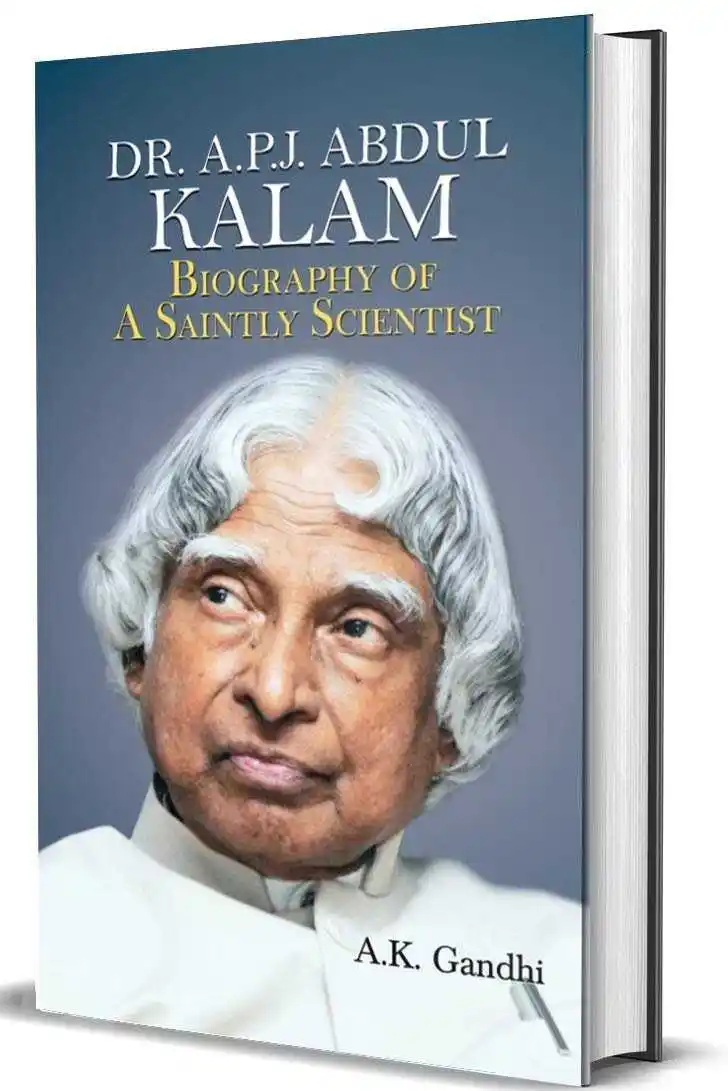
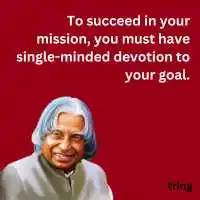
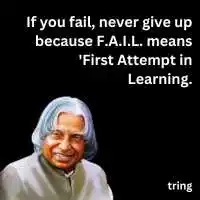
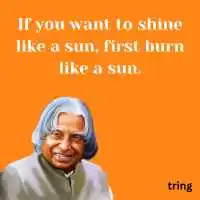
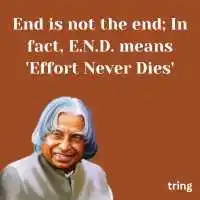





 We now support international payments
We now support international payments
